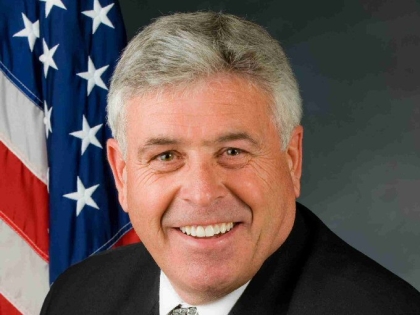
Senate Approves Bill to Help Wineries
Darrel J. Aubertine
June 28, 2010
-
ISSUE:
- Agriculture
Aubertine bill continues Senator's effort to support the agricultural industry
ALBANY (June 25, 2010) The New York State Senate has passed legislation (S.8305) that will increase profitability and sustainability of winery and wine grape growers through a better economic, environmental, and regulatory climate. The bill would allow wineries to operate satellite stores, removes numerous licensing requirements, makes participation in charitable events easier and allows consumers to part of the wine making process through custom crush.
“With an estimated $3.76 billion economic impact, wine production in New York is a growing and thriving industry and this legislation will help wineries reduce their costs, increase tourism and make it easier to expand their businesses,” said Senator Darrel J. Aubertine, Chairman of the Agriculture Committee.
The provisions of this proposed bill address policy issues raised by wine-producing members of the New York State Wine and Grape Task Force, which was convened by Agriculture Commissioner Hooker to determine ways in which the state could better assist wineries and wine grape growers.
“This bill expands opportunities for development of the farm wine industry—including many family-owned small businesses—and will enhance offerings to consumers,” Senator David J. Valesky (D-Oneida), said. “Our New York wines are a source of state pride, and our wineries are great economic engines. This legislation encourages their growth.”
Julie Suarez, Director of Public Policy for New York Farm Bureau and a member of the Commissioner's Wine and Grape Task Force, said "The passage of this bill represents a significant boost for New York's family wine and grape farmers. Senator Aubertine's sponsorship marks a major milestone in streamlining the archaic alcohol beverage control law for farm wineries, as it implements substantive recommendations from the state's wine and grape community."
"I want to thank Senator Aubertine for getting this passed and for his continued support of our local farm wineries. Implementing the findings of the New York State Wine Grape Task Force is important for the continued growth of the industry locally," said Phil Randazzo, owner of Coyote Moon Vineyards in Clayton, NY. "Eliminating layers of bureaucracy and providing more flexibility in how I run my business allows me to devote more time to my product and less to compliance with government regulation. Farm wineries are a growth industry in the Thousand Islands and it is good to see new legislation from Albany that is good for the farmers and is business friendly."
More specifically the bill would:
Satellite Stores - The bill would give farm wineries the ability to operate up to five branch offices located away from the licensed farm winery, after notifying the Authority of the location of such branch office and receiving a permit. Branch offices would be treated as extensions of the farm winery, not as separate entities that are subject to the restrictions imposed on package stores.
Custom Crush - The measure would allow farm wineries to provide and/or utilize custom crush services for purchasers of New York grapes, and ensure that that the "natural disaster" exception which permits the use of out-of-state grapes in limited circumstances would apply to custom crush facilities.
Record Keeping - Under provision of the proposed legislation, wineries would be authorized to maintain reports on-site and produce them at State Liquor Authority’s (SLA) request.
Elimination of Multiple Licenses - The bill seeks to eliminate various provisions of ABC law relating to temporary and special licenses and permits and would eliminate the separate micro-winery license provisions, instead providing for a $50.00 annual fee for farm wineries manufacturing no more than 1,500 finished gallons of wine annually.
Charitable Events - The proposed legislation would establish an annual permit process for participation in such events, eliminate the current cap of five such events per year and allow the SLA notification by written or electronic notice.
-30-